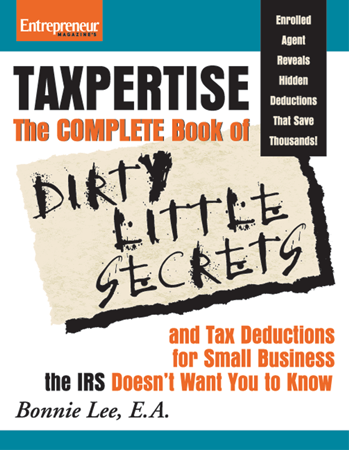I have encountered so many misconceptions about what is deductible when you purchase, own, and operate a rental property or a personal residence for that matter. Here’s the list of misconceptions and the correct answers:
- Misconception: You are allowed to write off the down payment. Wrong! This expense is part of the basis of the property and is not deductible on your tax return. You still get the write off, albeit indirectly, via depreciation. Here’s how that works: you buy a property for $100,000. You put down $20,000 and pay $5,000 in closing costs. Your basis in the property is $105,000. After deducting the value of the land, you write off the remainder over 27.5 years for residential property and 39 years for commercial property. Depreciation applies only if the property is a rental activity; you cannot depreciate your personal residence. You are allowed, however, to depreciate the portion of the home used as a home office in an active trade or business.
- Misconception:Closing costs are deductible. No they are not. They are added to the basis of the property and are deducted via depreciation over the useful life of the property as described above. But take a close look at the closing costs. There may be some expenses listed there that you paid for, e.g. insurance, points, and property taxes which may be currently deductible. Always give closing papers to your tax pro, whether it’s for a purchase, refinance, or sale of a rental property or your own personal residence. Insurance is not deductible for a personal residence but it is an valid write-off for a rental or home office.
- Misconception: Points are always currently deductible. Points are only deductible in the year of purchase of a personal residence. For a rental property, points may be deducted ratably over the life of the loan. If you refinance your personal residence and pay points, you may amortize those over the life of the loan as well. It’s taken as a deduction on Schedule A under mortgage interest.
- Misconception: When you sell a property, your mortgage balance is deducted from the selling price to determine your taxable gain or loss. No, no, no! Your mortgage balance is not a factor in the equation. The IRS couldn’t care less if you financed or paid cash for a property. The basic formula is: selling price less selling costs and the basis in the property. If you sold the $105,000 rental property purchased in #1 for $205,000 and paid out $19,000 in closing costs and sales commissions plus $1,000 for a roof repair, your taxable gain would be $80,000. $205,000 – $105,000 – ($19,000+$1,000) = $80,000. You may also have depreciation recapture which will be included as income on your tax return. Check with your tax pro.
- Misconception: Income received from rentals owned in foreign countries is not taxable. Check with Charles Rangel (D-Harlem) on this one. He was confused about the taxability of rents received on his villa in the Dominican Republic. Why was he confused? “Because,” he says, “I don’t speak Spanish.” Hah! This was one of the reasons he was censured by Congress. Don’t get yourself censured. It’s taxable income, okay?



